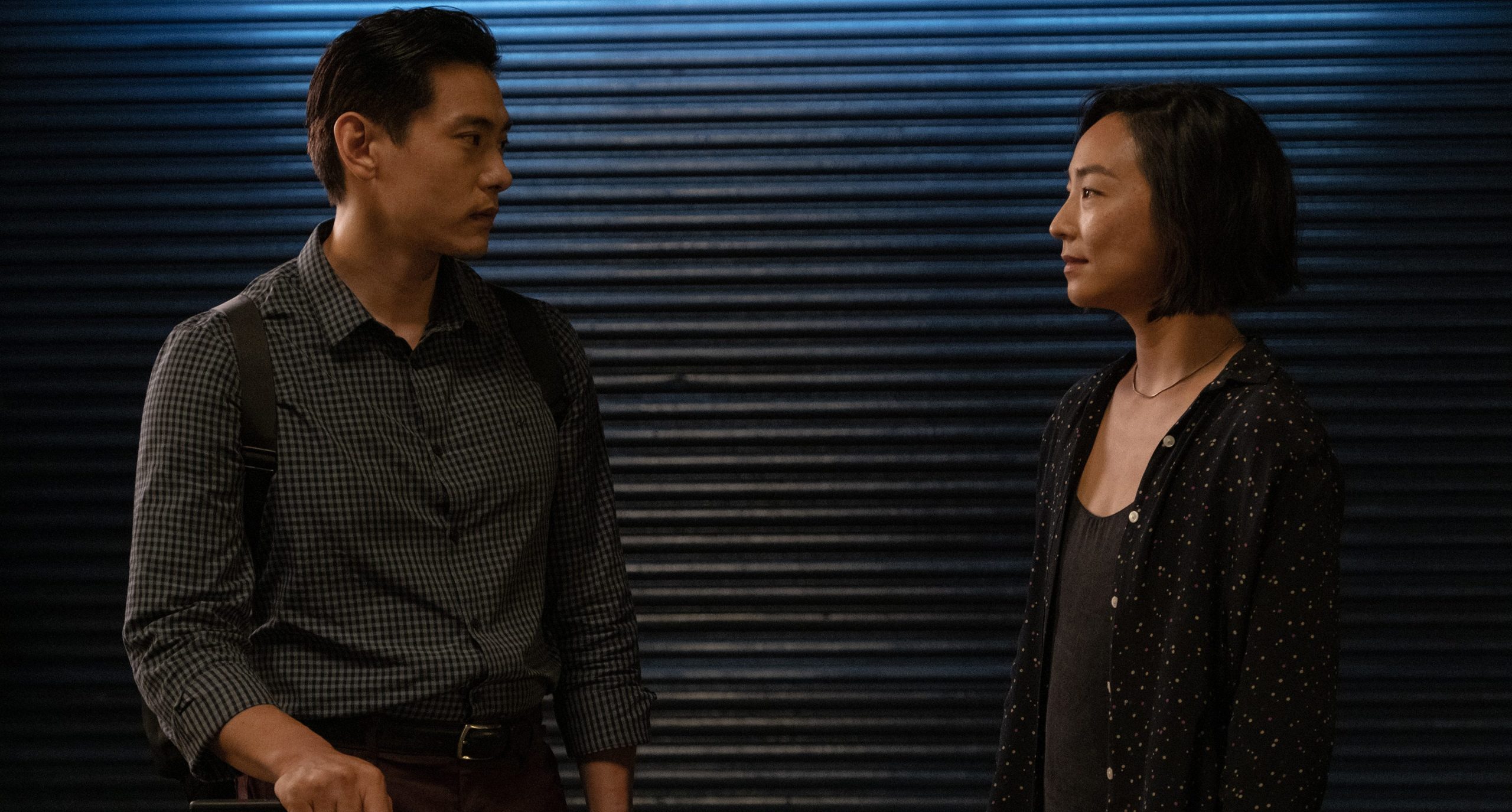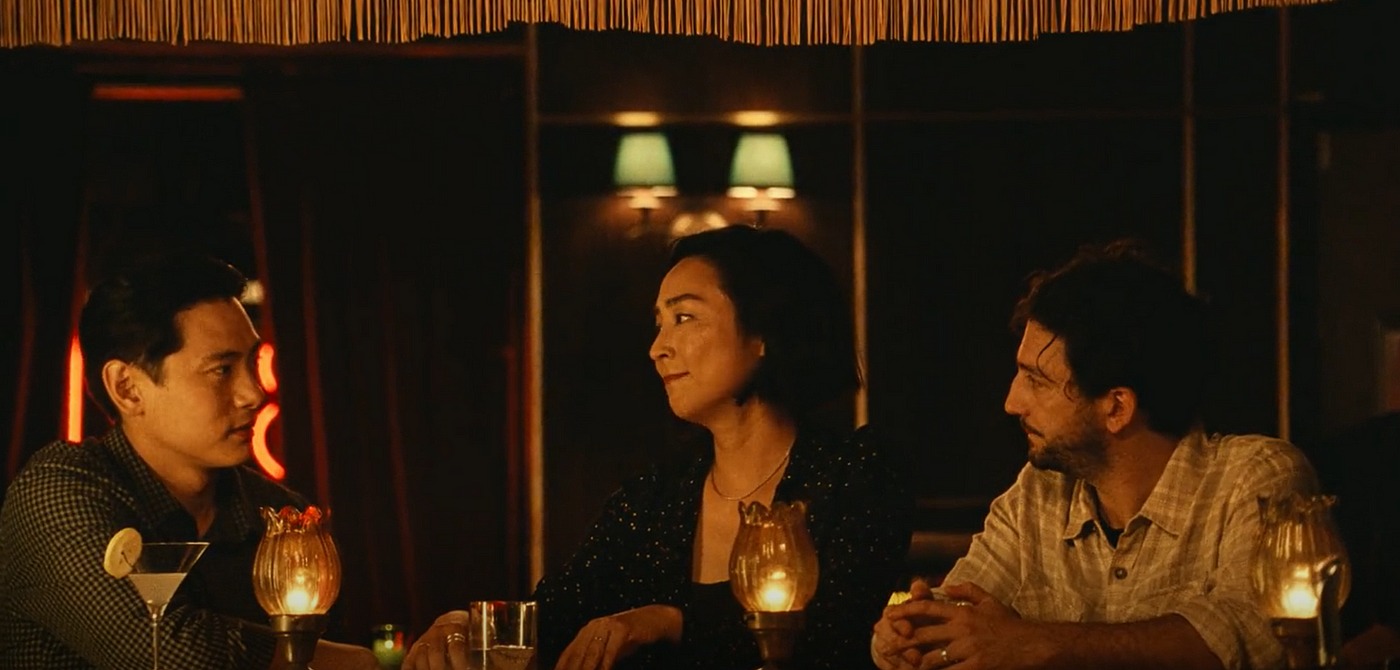People often recall their favorite movie endings as those with shocking twists, dramatic confrontations, or deeply emotional moments—whether it’s two lovers choosing to stay together or parting in heartbreak. However, some of the most powerful endings rely on quiet subtlety, allowing filmmakers to express profound emotions through restraint.
A perfect example of this approach is William Wyler’s Roman Holiday, a film that builds nearly two hours of joyful romance between Audrey Hepburn and Gregory Peck, only to conclude with a farewell that remains unspoken.

The final moments take place in a public setting where their separation cannot be openly acknowledged, leaving them to communicate their bittersweet goodbye through nothing more than glances and implied emotion.
Looking at films from 2023, one that stands out for its ability to convey deep meaning through minimal dialogue is Celine Song’s debut feature, Past Lives.
The success of this relationship drama largely depends on whether its delicate final moments deliver the emotional weight they are meant to carry. Examining the film’s closing scene reveals just how much can be drawn from so little and why it leaves such a lasting impact.
Remembering the Story of Past Lives
At the core of Past Lives is the bond between two childhood friends, Nora (born Na Young), played by Greta Lee (Russian Doll), and Hae Sung, portrayed by Teo Yoo (Love to Hate You). Growing up in South Korea, they were inseparable, their connection hinting at an innocent affection that neither fully understood at the time.
Just as those feelings might have had the chance to grow, their time together was abruptly cut short when Nora’s family relocated to Canada, bringing their friendship to an end.
Years later, after more than a decade apart, Nora is living in New York, pursuing a playwriting career. Hae Sung, having completed his military service, is back in South Korea, traversing a new relationship but still uncertain about his direction in life. With the rise of social media in the 2010s, the two reconnect on Facebook, leading to frequent Skype conversations.
Their conversations quickly become intimate, rekindling their childhood bond at a pace that feels overwhelming. Fearing the emotional intensity of their virtual relationship, Nora decides to cut ties with Hae Sung.
During this time, she attends a writers’ retreat, where she meets fellow writer Arthur (John Magaro, First Cow), eventually falling in love and getting married.
Another twelve years pass, and while Nora has built a stable life with Arthur, Hae Sung, now single, reaches out to let her know he will be visiting New York.
Though unspoken, she understands his trip is more than just a casual vacation—it is an opportunity for them to confront their unresolved past, question the emotions that still remain, and determine if any connection between them still exists.
The Final Moments of Past Lives
During his visit, Hae Sung and Nora spend time revisiting old memories while exploring the city together, stopping at several well-known New York landmarks. On his final night, Nora invites him to dinner with Arthur, and the evening takes them to a bar in the early morning hours.
Despite Arthur not understanding Korean, the bar becomes the place where Nora and Hae Sung have their most honest conversation.
They reflect on what might have been if Nora had never left South Korea, questioning whether their bond transcends time and exists across multiple lifetimes.
The last scene captures Nora and Hae Sung standing together on the street, silently facing each other as they wait for his Uber to arrive. Neither speaks. The film does not cut away, nor does it rely on close-ups—just a single wide shot holding the weight of their emotions.
Before stepping into the car, Hae Sung raises the question of whether they will find each other again in another life. He departs, leaving Nora to return home, where she collapses into Arthur’s arms, overcome with tears.
Interpreting the Meaning Behind Past Lives’ Ending
Many films would frame this kind of story as a classic love triangle, suggesting that Nora must choose between her husband and a long-lost love. However, Past Lives does not approach love in such simple terms. Nora’s commitment to Arthur is unwavering, and her feelings for him are not in question.
A traditional Hollywood film from decades past might have leaned into the idea that true love is defined solely by romantic passion, pushing Nora toward a grand decision between two men. But this film challenges that notion, offering a more nuanced perspective on love and connection.
The bond between Nora and Hae Sung stems from shared history and formative experiences rather than just romance. Those who have moved away from childhood friends can understand the unique connection that remains, even after years of distance.
Meeting those individuals again, even after a decade apart, can reignite something indescribable, even if lives have taken completely different paths.
Their relationship contains elements of attraction and romance, but that is only part of a deeper, more complex connection. The final moments of the film depict two people who hold deep love for each other, yet recognize that their lives are not meant to intertwine.
The realization is painful, made even harder by the fact that the foundation of their bond was formed long before they had the maturity to understand its importance.
Another Possible Interpretation of the Ending
For viewers who perceive Past Lives as a story of romantic indecision, that perspective is not without merit. Throughout the film, Nora discusses the Korean concept of In-Yun, the belief that certain connections between people are predestined, shaped by encounters in previous lifetimes.
Given that the film’s title references this idea, it is easy to see how one could interpret the story through the lens of fate and soulmates.
Western audiences might equate In-Yun with the idea of a singular soulmate, someone destined to be a person’s true love. If this is how one reads the film, then the final scene might feel like a moment of choice for Nora—an internal conflict over whether she should follow her heart to Hae Sung or remain with Arthur.
In this view, her tears after Hae Sung leaves could be seen as regret, mourning the path not taken.
However, seeing the story this way undermines the depth of Arthur and Nora’s relationship. Earlier in the film, Arthur even jokes that their situation could be interpreted as a cliché—him being the white man keeping Nora from reuniting with her childhood sweetheart.
Believing this to be a tragic love story centered on missed opportunities diminishes the importance of the life she and Arthur have built together. Their marriage is not a mistake, and reducing it to an obstacle in Nora’s path would disregard the depth of their bond.
Celine Song’s Perspective on the Ending
Given that Past Lives draws heavily from Celine Song’s own experiences, her insight into the film’s final moments is particularly revealing. Speaking with IndieWire, she made it clear that Nora’s emotions in the last scene are not about longing for Hae Sung, but about something much deeper:
“She has to cry, but she’s not crying for the whole of the film. So this is the moment that she’s alone for the first time almost in the film. And she can allow herself to grieve like that. That walk is about the grief for the little girl that she never got to grieve. It’s not about, ‘Oh my god, I wish I went with Hae Sung,’ it’s more about the girl.”

For years, Nora has adapted to new environments, building a successful life more easily than Hae Sung. Unlike her, he has struggled to move forward, making this trip to New York a necessary step for him to find closure. Song elaborated on how she wanted Hae Sung’s final moments to reflect peace rather than despair:
“The easier thing for him is to feel self-pity or melancholic, or sad. But actually, I was like, ‘No, you should look like you’re at peace, and you’re glad, and you’re exhausted, but in a great way, like the way you’re going to feel once you’ve made this movie.'”
Directors often interpret their own work differently from audiences, but in this case, Song’s vision aligns with the emotions so powerfully conveyed on screen. Few filmmakers achieve such clarity in storytelling through silence, especially in a debut feature.
Past Lives manages to communicate profound truths about love, loss, and personal growth with remarkable restraint, solidifying its impact through what remains unsaid.
Past Lives is now available for rental on most major streaming platforms.



